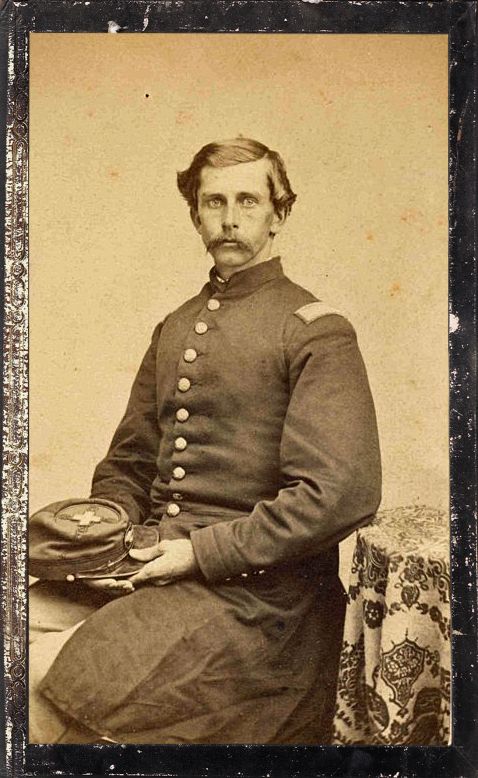

William H. Partridge was born in 1837 in New York State. At time of his enlistment, he was described as 5'11", blue-eyed, with light complexion. On May 14, 1861, he enlisted as Private in Company A of the 67th NY, 1st Long Island Volunteers. In March 1862 during his time at Camp Proctor, Pvt. Partridge contracted a heavy cold that developed into Typhoid Pneumonia. General prostration and loss of voice persisted until well after the war. His convalescence continued through several locations including the Regimental Hospital from March 6th to March 11th, 1862, the Brigade Hospital from March 12th to the 15th, Douglas Hospital in Washington DC from March 15th to April 5th, and again from May 5th to June 2nd. Upon this last day, he finally returned to his Regiment.
Rising through the ranks, Mr. Partridge was made Sergeant on August 1, 1861, First Sergeant on November 15th, 2nd Lieutenant on August 30, 1862, 1st Lieutenant on September 28th, 1863, and finally Brevetted Captain upon Mustering Out on March 14, 1865. He was captured on May 6, 1864 during the Battle of the Wilderness but was Exchanged on March 1, 1865.
Soon after discharge, Mr. Partridge married Emeline S. Jackson on May 2, 1865. She was born in Malden, Massachusetts on June 29, 1842. Her father was born in Canada. No information on her mother. They had a son, William, and a daughter, Emeline (married name was Lispett). No other information as far as birth dates of the children is available. William's wife Emeline lived in Washington DC for 50 years.
William Partridge died January 3, 1906 at the age of 69 from cerebral hemorrhage and exhaustion. Occupation at time of death was Government Employee. Place of residence at time of death was listed as 1414 Girard Street NW, Washington DC. He was buried at Arlington Cemetery.
After William's death, Emeline moved to West New Brighton, Staten Island. She died February 10, 1936 at the ripe old age of 93 from natural causes. She was buried with William at Arlington. In 1936, their daughter requested that she receive part of the pension that was $40 because she was blind and could not work. It was denied.
All information was acquired from pension papers provided by the National Archives in Washington DC.